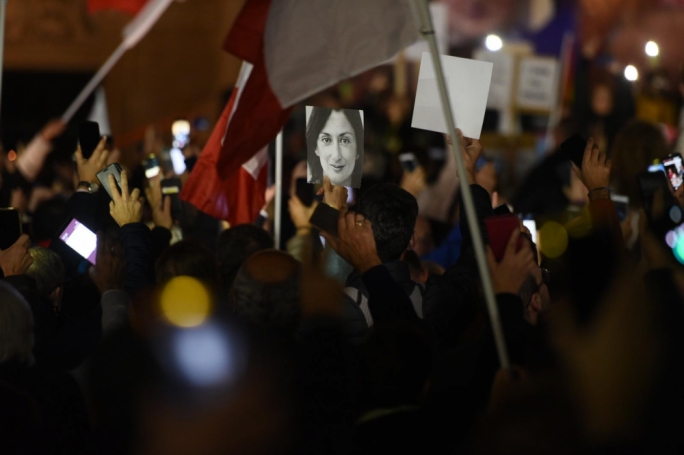A year on – Justice has not been served yet

A year ago, people were looking forward to starting a fresh page following the political turmoil and corruption scandals that led to the resignation of Joseph Muscat as prime minister. Scandals for which journalist Daphne Caruana Galizia had paid the ultimate price with her brutal murder in October 2017.
Two years down the line, in December 2019, the people did not take to the streets demanding a general election or with a pro-opposition political agenda. It was a genuine cry from civil society and thousands of individuals who have the rule of law and the value of justice at heart. All they demanded was that everyone in this country shoulder responsibility for their actions and that institutions meant to safeguard the common good are no puppet on a string and are allowed to function properly. Corruption hurts workers as ultimately it robs the country’s coffers of taxpayers’ money.
Now that we are on the brink of 2021, everyone can look back and draw to their conclusions. Many of the protagonists of these scandals have almost disappeared from public life as they either resigned or no longer have the same responsibility.
At the same time, institutions such as the police force and the Attorney General’s Office, on which a shadow had been cast, are under new leadership. In the meantime, various constitutional reforms have been enacted on the advice of the Venice Commission. These will place certain institutions such as the Court completely out of the politicians’ control. Other reforms are intended to broaden the powers of the President of Malta including the appointment of members of the judiciary while the Head of State himself will be elected by a two-thirds parliamentary majority. This mechanism was also applied to the appointment of the Chief Justice, the Ombudsman and the chair of the Permanent Commission against Corruption.
In addition, the concept of judicial review was introduced. This tool empowers the Auditor General, the Ombudsman, the Commissioner for Standards in Public Life and the Standing Committee on Corruption to challenge a decision of the Attorney General in case the latter decides not to prosecute anybody referred to him by these institutions. Undoubtedly, these reforms have been a step in the right direction as they are responding to the shortcomings of recent years.
However, in 2020 there was also expectation for justice to be served – both in the murder of Caruana Galizia as well as those implicated in the various corruption scandals.
During the past 12 months more evidence continued to emerge from the courts which placed institutions and certain individuals under dark clouds more than ever. The testimony given in both the compilation of evidence and the public inquiry into the murder of Caruana Galizia continued to fuel doubts, suspicions and questions. For those at the forefront of the fight against the culture of impunity, such evidence only served to rub salt into the wound as to date no prosecutions followed.
Rule of law does not only translate to reforms, but it also dictates that justice is served – both in the murder of Caruana Galizia and in various the corruption scandals which in recent years tarnished Malta’s reputation. Failure to act will mean that history will repeat itself. Justice must not only be done but it must be seen to be done. Moreover, having a court for “small fry” would be an injustice in itself.
